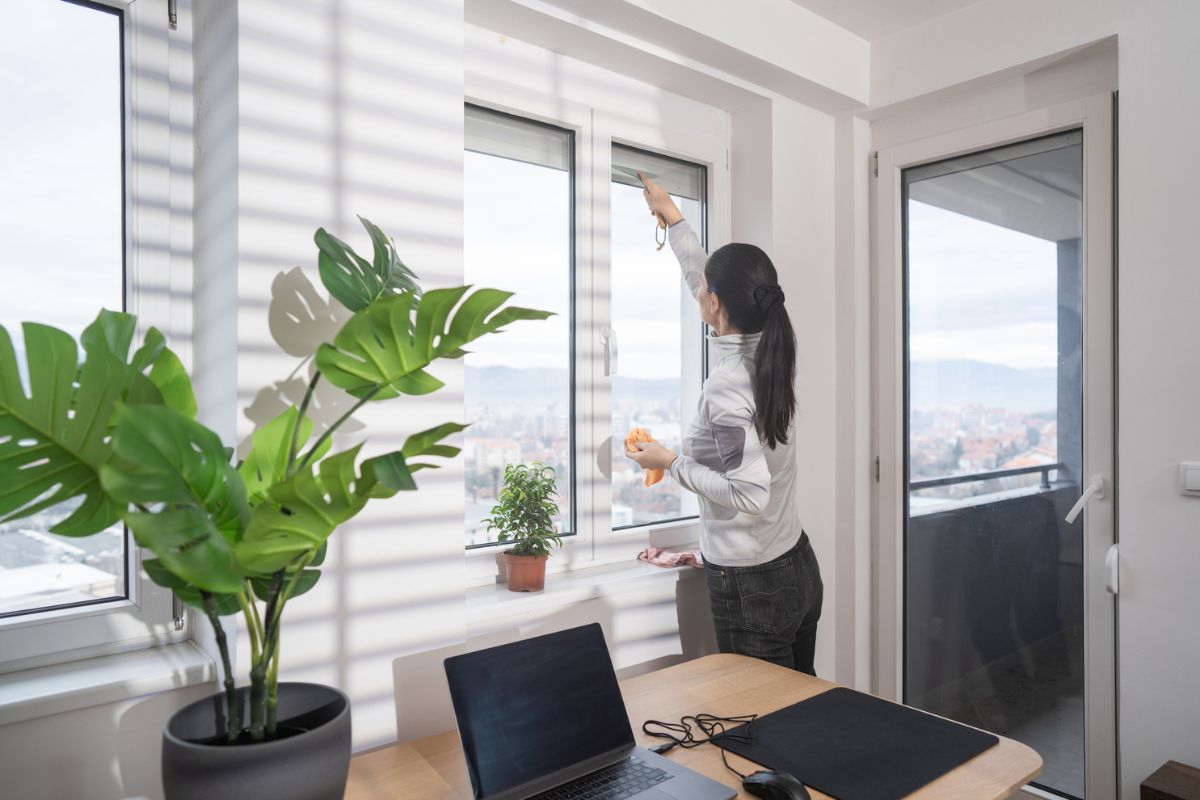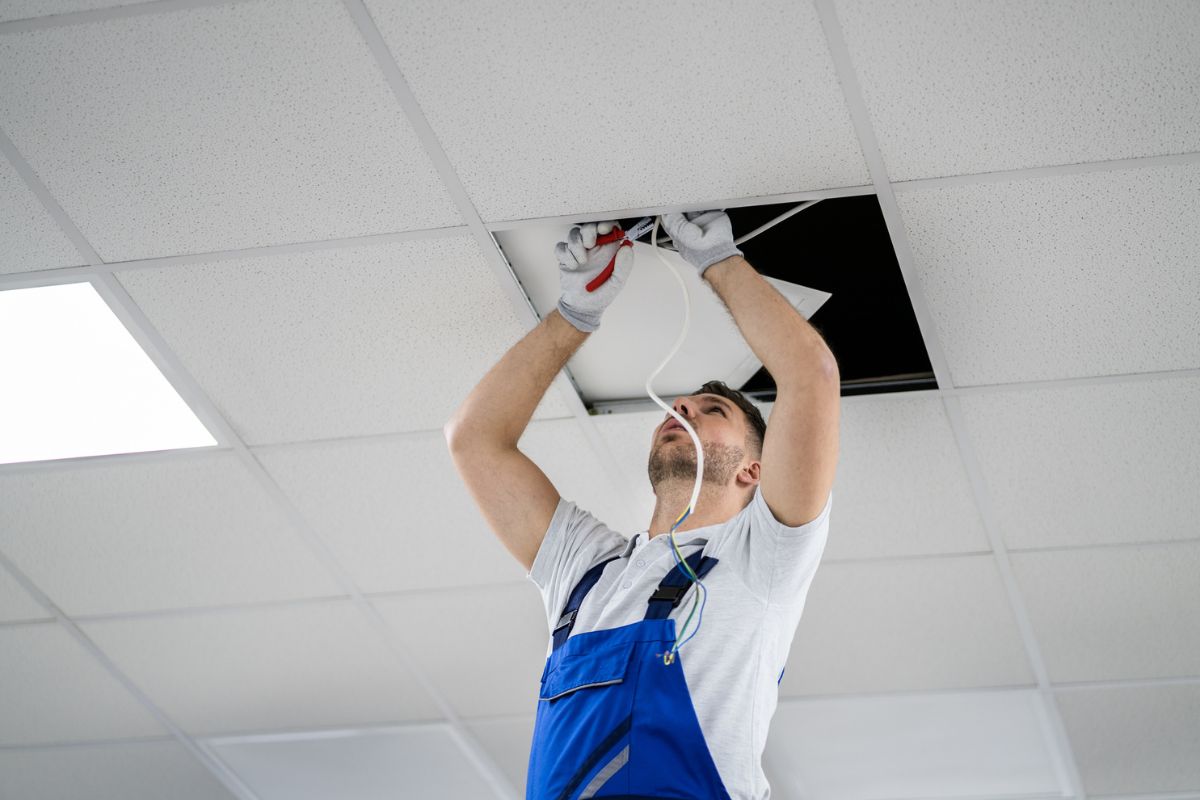Introduction
Changing seasons have a significant impact on business energy costs, and whilst winter often gets the spotlight, summer can bring high energy bills too. From increased cooling demands to shifts in operating hours, the warmer months come with their own set of challenges.
Our guide helps you understand the factors that drive prices and affect summer energy bills, as well as offering some helpful energy saving tips for summer.
How Does Summer Energy Use Differ from Winter Energy Use?
Business energy usage fluctuates throughout the year, with demand typically at its lowest during spring and autumn, when temperatures are more moderate. In the summer, as temperatures rise, the demand for heating declines. But this is often offset by a surge in electricity use due to increased reliance on air conditioning and cooling systems. Longer daylight hours also reduce the need for artificial lighting, slightly easing electricity consumption in that area.
In summer, energy demand typically peaks in the afternoon when outdoor temperatures are highest and cooling systems are running at full capacity. In contrast, winter energy demand usually peaks in the morning and evening, coinciding with workday routines and increased heating needs. Overall, energy demand on a typical winter day is about 36% higher than on a summer day.
The nature of the business can also affect seasonal energy use, schools, for example, may close during the summer holidays, and some businesses experience either a lull or a spike in activity during this time.
Seasonal changes impact summer energy production as well. Renewable energy sources, particularly solar power, typically perform better in the summer due to longer daylight hours and clearer skies. Additionally, summer tends to bring fewer weather-related disruptions, such as snow or ice storms, which can affect energy production and distribution in winter months.
To find out more about what drives energy prices, check out our in-depth guides.

Why Does Energy Efficiency Matter in the Summer?
Despite common misconceptions that energy savings will happen naturally in the summer, it is still important to monitor your energy usage in the warmer seasons, which can be a great opportunity for savings.
Focussing on improving your energy efficiency in summer can bring a range of benefits for your business including:
- Reduced overhead costs – cutting down on your summer energy usage is a great way to reduce your overhead costs. By implementing simple summer energy saving strategies, you can reduce your consumption and lower your operating expenses, freeing up resources to be used in other areas of your business.
- Reduced carbon footprint – efficient energy usage can help contribute towards lowering your business carbon footprint. Not only is this good for the planet, but it can also boost your corporate social responsibility (CSR), showing customers and competitors alike that you are doing your bit for sustainability.
- Extended equipment lifespan– by running your equipment, such as HVAC and lighting systems efficiently, you can prolong their lifespan and help them to run more smoothly, minimising the chance of malfunction.

Business Energy Saving Tips for Summer
Our easy-to-implement business energy saving tips for summer are designed to help you reduce energy consumption, cut operational costs, and improve overall efficiency. Whether you run a small office, a retail store, or a large commercial facility, these practical strategies allow you to make savings whilst supporting your sustainability goals.
- Understand your energy usage – before you get started, it is important to understand exactly how your business uses energy. Conducting a business energy audit is a great way to look at the big picture of your energy behaviour, so you can start implementing the following business energy saving tips for summer.
- Take advantage of natural light – in summer, longer daylight hours provide a great opportunity to keep your workspace bright without the need for artificial lighting. Try switching off the lights and opening blinds and windows where possible (though beware of direct sunlight heating up your space too much!)
- Use natural ventilation – air conditioning is one of the main culprits when it comes to summer energy consumption. So, before turning on the fans and air cons, try opening a window to get some fresh air circulating.
- Keep your HVAC systems in tip top condition – although you may not use them so much in the cooler months, it is important to carry out regular maintenance on your HVAC systems throughout the year, including cleaning and replacing filters when necessary. This will keep them running smoothly and efficiently.
- Upgrade your lighting – did you know that LED bulbs can use between 40-50% less energy than florescent bulbs to produce the same amount of light? This easy and inexpensive switch can help you save energy, without compromising on the performance of your lighting systems.
- Check appliance labels – when buying appliances for your business, from kettles to specialist equipment, be sure to check the energy efficiency rating. This will tell you how much energy the appliance uses, so you can be sure to choose the best option. You can also find out more about which appliances use the most energy in your business in our handy guide.
- Consider your water usage – water usage is often overlooked when implementing summer energy saving tips, even though warmer temperatures often bring an increase in water usage. Repairing leaks promptly and turning down your boiler flow temperature can contribute to lower overall utility costs.
- Invest in renewable energy –to further boost your sustainability, consider switching to green energy to power your business. For larger businesses, installing your own renewable technology, such as solar panels can provide a great return on investment, especially in the sunnier months.
- Take advantage of off-peak energy hours – Running energy-intensive equipment during early morning or evening hours can help you avoid peak electricity rates, lowering your summer energy costs and reducing strain on the grid.
- Get a smart thermostat – installing a smart thermostat is a simple yet effective way to optimise your summer energy use. These devices automatically adjust temperature settings based on your business’s operating hours so you can avoid unnecessary cooling when spaces are unoccupied.
- Monitor and measure your efficiency efforts – when implementing summer energy saving initiatives, it’s important to make sure you’re tracking your progress. A great way to monitor your usage is by getting a smart meter for your business. This gives you greater insights into how your energy saving is going and helps you to continue to develop efficiency strategies in the future.
For more helpful summer energy saving tips, as well as how-to guides to help you optimise your business energy, check out our range of free energy saving guides, designed for businesses of all sizes and sectors.

Looking to take control of your summer energy costs?
If you’re ready to cut your summer energy costs, Yü Energy can help you! With competitive rates and tailored plans, as well as a range of free guides and tools, we work with businesses of all sizes and industries to manage their energy costs effectively.
Get your free online quote today and find out how much you could save!

 0115 975 8258
0115 975 8258

